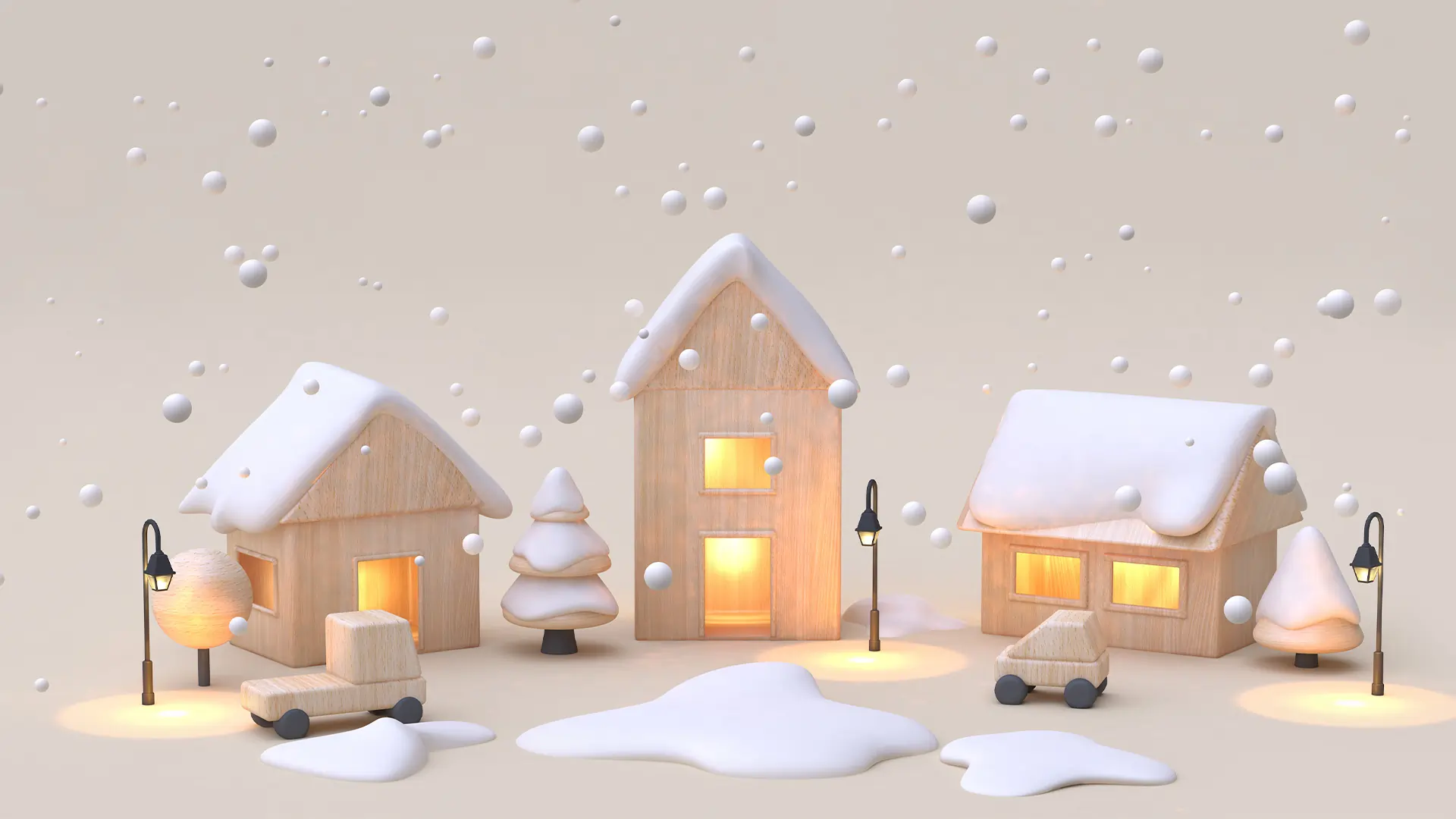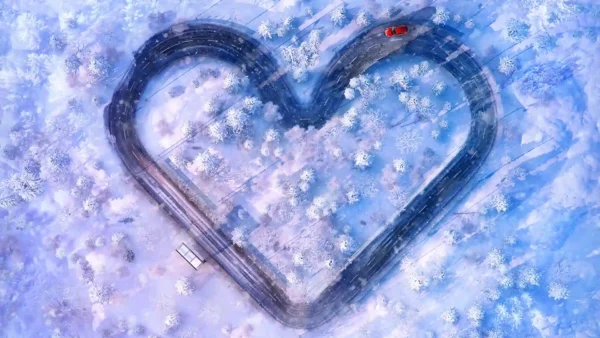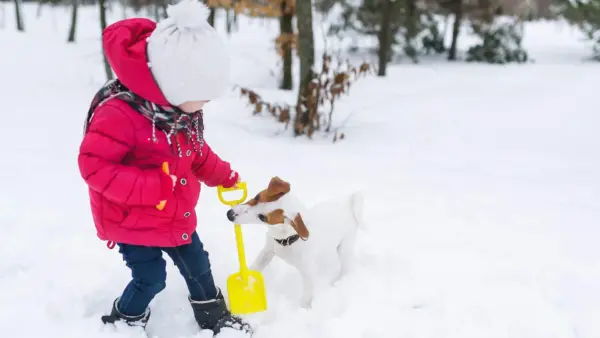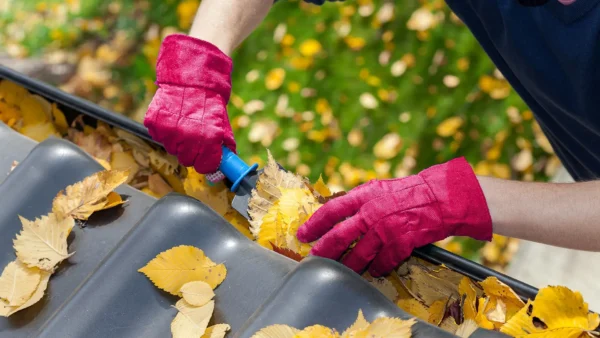Canada has its way of surprising us with the weather. At the beginning of winter, it’s always a good idea to do a thorough property inspection. Checking your home’s pipes and water drainage systems is top of the list, and it’s key to staying ahead of potential issues. But what happens when snowfall happens unexpectedly later in the season?
Snow dumps and cold snaps aren’t uncommon during the springtime, but we’re often less prepared for these events and when the weather catches us unaware, it’s likely to result in property damage or even liability claims.
Here’s some advice to help you stay ahead of wintery weather, no matter when it comes.
Mitigating property damage claims with early prevention and maintenance
During the colder months, property losses often occur because of poor maintenance and installation causing frozen and burst water pipes. These are not covered by home insurance if the cause of the loss can be traced back to lack of maintenance or inadequate installation.
Many insurance companies will insist upon adequate risk mitigation measures as a condition of coverage. Even during the spring, unexpected cold snaps can cause serious issues with a home’s plumbing, and that problem is exacerbated when coupled with poor maintenance.
The installation and protection of utilities is similarly important. Both business owners and homeowners will want to check and re-check their property’s sealing. Adequate sealing foam can help protect the external connection of utilities as well.
With climate change fluctuations and more instances of severe and unpredictable weather, it’s wise forall property owners to get ahead of any potential issues before they arise. Performing regular upkeep and maintenance year-round, like trimming landscaping, inspecting roofs, fixing small damages, and hiring professional contractors to come in do repairs as needed is a must, and can help prevent future claims and can help prevent future claims and the increase in rates that often accompany them.
In summary:
- Frozen and burst water pipes are one of the major causes of damage to homes during the winter and spring.
- Proper maintenance and regular inspections can mitigate the odds of snow and cold-related damage.
- Being a diligent homeowner and performing regular maintenance, even when it seems like winter has passed us by, is crucial.
Reducing potential exposures to heavy snowfall
Heavy snowfall, especially when it’s unexpected, can cause lots of damage to a home or commercial property. Landscaping and vegetation not trimmed or maintained can cause poor drainage and water/ice pooling in vulnerable areas, such as around the building’s foundation.
With any heavy snowfall – regardless of when it happens – we recommend doing the following:
- Clear away snow from walkways, driveways, and roofs to prevent accumulation and structural damage.
- Trim overhanging tree branches.
- Avoid heating attics to prevent snow on roofs from melting and pooling underneath your shingles.
- Clean out gutters and eavestroughs to prevent water buildup.
- Keep any obstructions away from exterior walls that could encourage a buildup of ice, as this can cause cracks and seepage.
Liability and coverage exposures due to winter weather
Beyond property damage, heavy snow, freezing temperatures, and ice accumulation at your home or business may expose you to some unique liabilities that occur only with freezing weather or snowfall, or even unveil some unique coverage gaps.
Commercial property exposures
Winter weather hazards can exacerbate the risk of slip-and-falls for businesses. Snow can accumulate rapidly on walkways, building entrances, stairways, walkways, and even wheelchair ramps. Snow can also conceal any walking hazards that would otherwise be visible under normal conditions, such as speed bumps, potholes, etc., that can injure visitors or even damage vehicles.
When the temperature plunges below freezing, icicles can form above entryways and can seriously injure anyone walking below. Yet another overlooked hazard is lighting; the winter season brings shorter daylight hours, which means exterior lighting may be needed to ensure that walkways and the parking lot are properly illuminated.
Work-related injuries spike during the winter as well. The National Safety Council (NSC) suggests that the top three leading causes of work-related injuries are due to slips, trips, and falls, which account for 84% of nonfatal injuries in the workplace. Keeping a clean walkway, getting rid of snow promptly, clearing away ice, and ensuring adequate visibility are key to keeping your commercial property safe.
Homeowner property exposures
Some of the most common exposures that homeowners face during heavy snowfall and winter weather events is a lack of adequate coverage. Few homeowners are fully aware of what their policy documents include, which can lead to confusion and uncertainty when a claim needs to be filed. Water-related winter damages are common, but not all homeowners have secured the necessary endorsements to protect themselves.
Ground water coverage is something Mitch Insurance frequently recommends. It provides protection against all varieties of “sudden and accidental” flooding. Not all insurance companies offer this coverage, however, so it’s important to check with a broker.
If you are unsure about what deductibles or policy limits are in place in the event of a winter or weather-related claim, it’s a good idea to consult with your broker. They can review your policy and go over any potential coverage gaps; their job is to ensure you, as the client, are as amply protected as possible.
Have questions? Give us a call at Mitch Insurance.
Looking for home insurance?
Speak with a Mitch Insurance broker today to get a quote on home insurance in Ontario.
Call now
1(403)8000267







